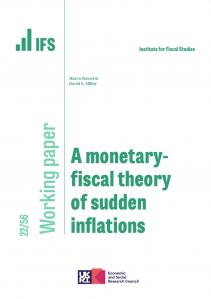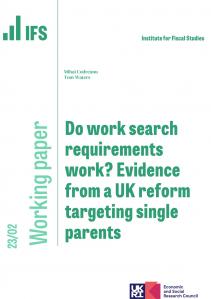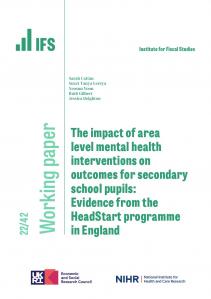See whether you can do better than the Chancellor by deciding how to allocate spending across the government's departments.
Authors

Rowena Crawford
Resource details
- Publisher
- IFS
Suggested citation
Crawford, R. (2013). DIY spending review 2013. London: IFS.
More from IFS
Understand this issue

Public investment: what you need to know
explainer
Everything you wanted to know about UK public investment but were too afraid to ask – including analysis of Labour and Conservative plans.
25 April 2024

Should we worry about government debt?
podcast
David Miles joins us to discuss high government debt and its impact on the economy.
11 April 2024

The £600 billion problem awaiting the next government
podcast
We speak to David Gauke and Giles Wilkes, two experts who have been at the heart of the spending review process.
25 April 2024
Policy analysis

Recent trends in and the outlook for health-related benefits
report
Recipients of and spending on health-related benefits have risen rapidly since the start of the pandemic, posing a serious challenge for policymakers.
19 April 2024

4.2 million working-age people now claiming health-related benefits, could rise by 30% by the end of the decade
press release
Our new report sheds more light on forecasts for a substantial increase in the number of people claiming health-related benefits in coming years.
19 April 2024

Oil and gas make Scotland’s underlying public finances particularly volatile and uncertain
comment
A fallback in oil and gas prices has hit Scotland’s underlying public finance position this year.
27 March 2024
Academic research

A monetary-fiscal theory of sudden inflations
working paper
This paper posits an information channel as the explanation for sudden inflations.
20 December 2022

Do work search requirements work? Evidence from a UK reform targeting single parents
working paper
We assess whether work search requirements for out-of-work welfare claimants are effective in inducing individuals to work & delivering fiscal savings
1 February 2023

The impact of area level mental health interventions on outcomes for secondary school pupils: Evidence from the HeadStart programme in England
working paper
This paper provides the first robust evaluation of the impacts on school outcomes of HeadStart for area-level mental health interventions.
13 October 2022